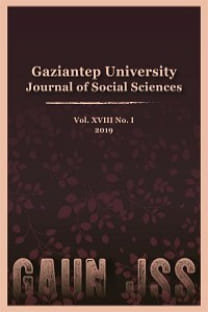Islamic Finance-Based Financing Mechanism Proposals to Support Local Economic Development
Çoğu ülkede, yerel yönetimlerin altyapı projeleri için temel finansman kaynağı merkezi hükümetin bütçesinden aktarılan transferlerdir. Ancak artan kent nüfusu düşünüldüğünde, bu kaynak şimdi olduğu gibi gelecekte artması muhtemel altyapı harcamalarını karşılamada yetersiz kalacaktır. Yerel yönetimler, sermaye piyasalarına katılım da dahil olmak üzere alternatif finansman yöntemlerini araştırmalıdır. Bununla birlikte, çoğu yerel yönetim, özellikle küçük ve orta ölçekli olanlar, düşük kredibiliteleri ve yetersiz teknik ve idari kapasiteleri nedeniyle sermaye piyasalarına erişememektedir. Bu nedenle birçok ülkede geleneksel finansal sistem kapsamında yerel yönetimlerin kredibilitesini artırmaya yönelik destekleyici mekanizmalar geliştirilmiştir. Konvansiyonel finansal sistemin kanıtlanmış yöntemlerinden ilham alan bu çalışmada, yerel yönetimler için İslami finans ilkelerine dayalı bazı destekleyici finansman mekanizmaları önerilmektedir. Bu mekanizmalar, yerel yönetimlerin daha yüksek kredibiliteye sahip biçimde sermayeye erişmesine yardımcı olabilir ve İslami sermaye piyasalarının gelişmesine katkıda bulunabilir. Bu çalışma, temel olarak yerel yönetimlerin sermaye piyasalarına doğrudan veya dolaylı olarak erişmelerini sağlayarak borçlanma maliyetlerini düşürmeye odaklanan beş farklı İslami finansman modeli önermektedir. Önerilen tüm modeller ülkemizdeki ilgili mevzuat ile büyük ölçüde uyumludur, ancak yerel yönetimlerin borçlanma limitlerine ilişkin yasal düzenlemelere ihtiyaç duyulabilir. Önerilen modellerin uygulama prosedürleri, geçiş sürecinin izlenmesini gerektiren yasal çerçevenin uyarlanmasını gerektirebilir. Bu çalışma, konunun özgünlüğü sayesinde genel bir fikir vermekte ve bu konuda yeni açılımlar sağlayacak daha sonraki çalışmalara zemin hazırlamaya çalışmaktadır.
Anahtar Kelimeler:
İslam ekonomisi ve finansı, İslami sermaye piyasaları, Sukuk, Kredi değerliliği
Islamic Finance-Based Financing Mechanism Proposals to Support Local Economic Development
In most countries, the main financing source for local governments for infrastructure projects comes from the central government’s budget. However, considering the growing urban population, this source will be insufficient to meet the likely increasing infrastructure expenditures in the future as it is now. Local governments must explore alternative financing methods, including accession to capital markets. Nevertheless, most local governments, especially the small and medium-sized ones, do not have access to capital markets, due to their low creditworthiness and insufficient technical and administrative capacity. For this reason, some supportive mechanisms to increase the creditworthiness of local governments within the scope of the conventional financial system have been developed in many countries. Aspired by the well-proven methods of the conventional financial system, this paper proposes some supportive financing mechanisms for local governments based on Islamic financial principles. These mechanisms could help local governments to access capital with higher creditworthiness and contribute to the development of Islamic capital markets. In order to lower the borrowing costs for local governments by giving them direct or indirect access to capital markets, this study suggests five possible Islamic financing methods. However, because to the novelty of the subject, it attempts to lay the groundwork for future research that will yield fresh perspectives on this issue.
___
- Abdullah, A.A., Yazid A.S., Abdullah, A. & Kamarudin M.S. (2014). Risk in funding infrastructure projects through sukuk or Islamic bonds. International Review of Management and Business Research, 3(2), 915-928.
- Akdis, M. (1998). Belediyelerin finansman konusundaki çagdaş yaklaşımlar ve Azerbaycan. Cagdas Yerel Yonetimler, 7(2).
- Anderson L.M. (2015). What the world needs now… is local infrastructure investments- Challenges and solutions with a focus on finance. Erişim tarihi: 1.10.2022, https://www.maproductions.se/wp-content/2015/03/What-the-World-Needs-Now%E2%80%A6-is-Local-Infrastructure-Investments-Challenges-and-Solutions-with-a-Focus-on-Finance.pdf
- Attinasi, M.G. & Brugnoli, A. (2001). Financial instruments for urban development support: the role of the world bank in Latin American countries. Milan: EGEA.
- Ayub M. (2007). Understanding Islamic finance. John Wiley & Sons Ltd.
- Chakrabarti M. (2014). Municipal bond market in India. Indian Journal of Applied Research, 4(3).
- Erol, T. (2006). Kamu altyapi yatirimlarinin sermaye piyasalari araciliğiyla finansmani. Erişim Tarihi: 11.7.2022, https://www.spk.gov.tr/Duyuru/Dosya/20061226/0
- Fitch Wire (2015). Infrastructure sukuk challenge significant but achievable. Erişim Tarihi: 30.6.2022, https://www.fitchratings.com/research/islamic-finance/infrastructure-sukuk-challenge-significant-but-achievable-02-04-2015
- Global Infrastructure Hub. (2022). Global infrastructure outlook: forecasting infrastructure investment needs and gaps. Erişim Tarihi: 22.6.2022, https://outlook.gihub.org/
- Islamic Financial Services Board. (2022). Islamic Financial Services Industry Stability Report 2022. Kuala Lumpur, Malaysia.
- Kehew, R., Matsukawa, T. & Petersen, J. (2005). Local financing for sub-sovereign infrastructure in developing countries: case studies of innovative domestic credit enhancement entities and techniques. Infrastructure, Economics and Finance Department discussion paper no. 1, Washington, D.C.: World Bank Group.
- Puentes R. & Thompson J. (2012). Banking on infrastructure: enhancing state revolving funds for transportation. Brookings-Rockefeller working paper. Erişim Tarihi: 10.7.2022, https://www.brookings.edu/wp-content/uploads/2016/06/12-state-infrastructure-investment-puentes.pdf
- Rhee, G. & Stone, G. (2003). The Asian bond bank: A good idea to explore for credit enhancements. Paper presented at the 2nd Annual Conference of PECC Finance Forum, July 2003, Thailand.
- Shaikh, S.A. (2015). Financing public infrastructure using sovereign sukuk. Journal of Islamic Banking and Finance, 32(1), 11-22.
- TÜİK. (2015). Türkiye İstatistik Kurumu nüfus ve demografi veri portali. Erişim Tarihi, 22.6.2022, data.tuik.gov.tr
- United Nations. (2018). World urbanization prospects: the 2018 revision. Department of Economic and Social Affairs, Population Division. Erişim Tarihi: 3.8.2022, https://population.un.org/wup/
- Vizcaino, B. (2015). G20 sets sights on sukuk for infrastructure financing. Erişim Tarihi: 25.8.2022, https://www.reuters.com/article/uk-islam-financing-sukuk-idUKKBN0MD0PX20150317
- ISSN: 1303-0094
- Yayın Aralığı: Yılda 4 Sayı
- Başlangıç: 1991
- Yayıncı: Gaziantep Üniv. Sosyal Bilimler Enst.
Sayıdaki Diğer Makaleler
The Causes of Failure Greek Minority Army in the Battle of Sakarya
Avrupa Birliği İlerleme (Ülke) Raporları Borsa İstanbul Yatırımcısı Tarafından Fiyatlanıyor Mu?
Mercan HATİPOĞLU, Caner DİLBER
Çocukluk Çağı Travmaları ve Hayatın Anlamı İlişkisi: Dindarlık Yöneliminin Aracı Rolü
Yerel Yönetimlerin Perspektifinden Geriatri Turizmi Potansiyelinin Değerlendirilmesi: Akyazı Örneği
Ahmet Selçuk GÜRKAN, Cansu KESKİN
Kültürel Mirasın Korunması Kapsamında Gaziantep Oyun ve Oyuncak Müzesi
Bir Dijital Pazarlama Segmenti Olarak Çocuklar: YouTube
Aytuğ MERMER ÜZÜMLÜ, Faruk GÜVEN
Bir Şahıs İki Portre: Mutezile ve Hanbelilere Göre Muâviye b. Ebî Süfyân
